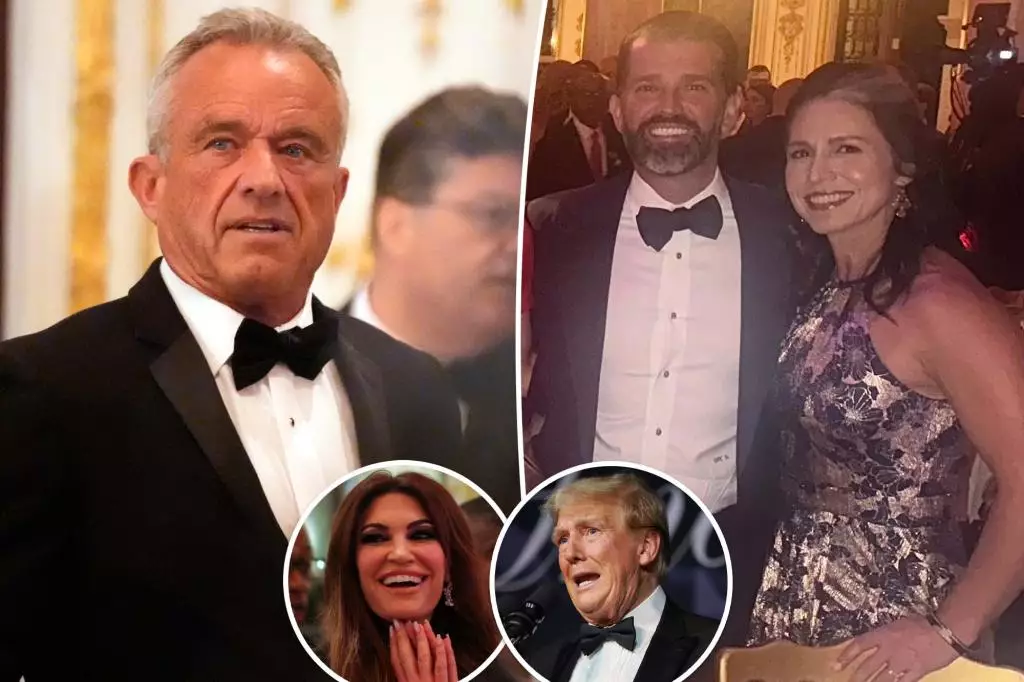In a politically-charged atmosphere, recently elected president, Donald Trump, hosted a lavish gala at his Mar-a-Lago estate in Palm Beach, Florida, bringing together a mix of celebrity and political figures to celebrate his administration’s unfolding. Among the attendees were Robert F. Kennedy Jr., who has been nominated for the position of Secretary of Health and Human Services, and Rep. Tulsi Gabbard, who transitioned from the Democratic Party to become a Republican, and is now vying for the role of Director of National Intelligence. This selection has sparked significant discourse, as both figures are known for their controversial stances and have deep connections to both parties.
While the gala exuded an air of triumph, it also served as a platform to highlight the consequential shifts within Trump’s cabinet. The presence of Matt Gaetz, nominated for Attorney General, alongside key figures like Trump Jr. and Kimberly Guilfoyle, underscored the intertwining of family and political loyalty that characterizes the Trump administration. This blending of personal relationships with political endorsements reveals a governance model that strays from traditional bureaucratic norms, raising questions about the intentions and qualifications behind these appointments.
The Celebrity Connection
Adding to the spectacle, actor Sylvester Stallone took the stage to introduce Trump, drawing parallels between the former president and the founding father, George Washington. Stallone’s dramatic proclamation, branding Trump as a “second George Washington,” stirred a mixture of admiration and contempt. The absurdity of such a comparison in the escalation of American political rhetoric illustrates how Trump’s presence continues to polarize opinions. Stallone’s remarks, while enticing to his fans, draw on a hyperbolic mythology that may not resonate with more grounded political discourse, prompting criticism from skeptics who question the wisdom of equating Trump’s modern political maneuvers with Washington’s historical sacrifices.
In addition, the gathering also featured notable financial contributors and influential figures, such as Omeed Malik, adding a layer of complexity to the night’s festivities. The intersection of finance and politics at such events blurs the lines of accountability and raises concerns about the motivations behind political donations. This gathering was not just a celebration of newly appointed officials but also a reminder of the enduring influence of money on political landscapes.
What Lies Ahead?
As the dust settles on this glamorous gala, the public is left to ponder the implications of these appointments and what they might mean for national policy. The choices reflect Trump’s ongoing commitment to principles that diverge from mainstream political platforms. Speculation surrounding the announcement of a potentially “big one” the following day only fuels curiosity about future appointments and policies within his administration.
While the evening served as a festive occasion for supporters, it simultaneously highlighted the complexities and controversies of an administration that is both celebrated and scorned. Moving forward, the mixed receptions of these new key figures in Trump’s cabinet are a testament to a divided political landscape, beckoning an uncertain future as the nation collectively navigates the repercussions of these new decisions.


Leave a Reply